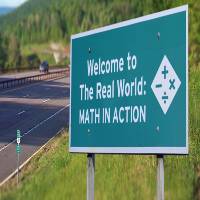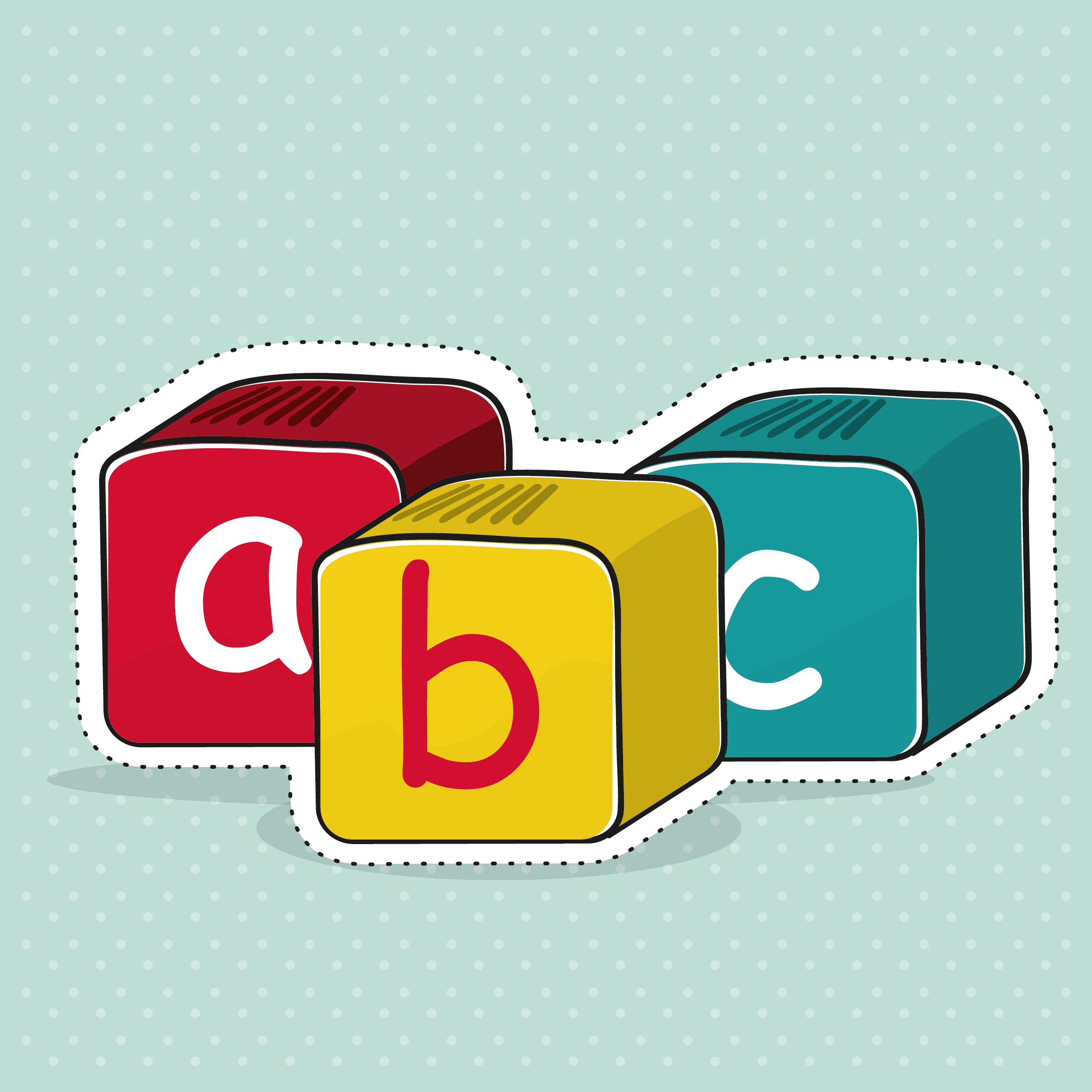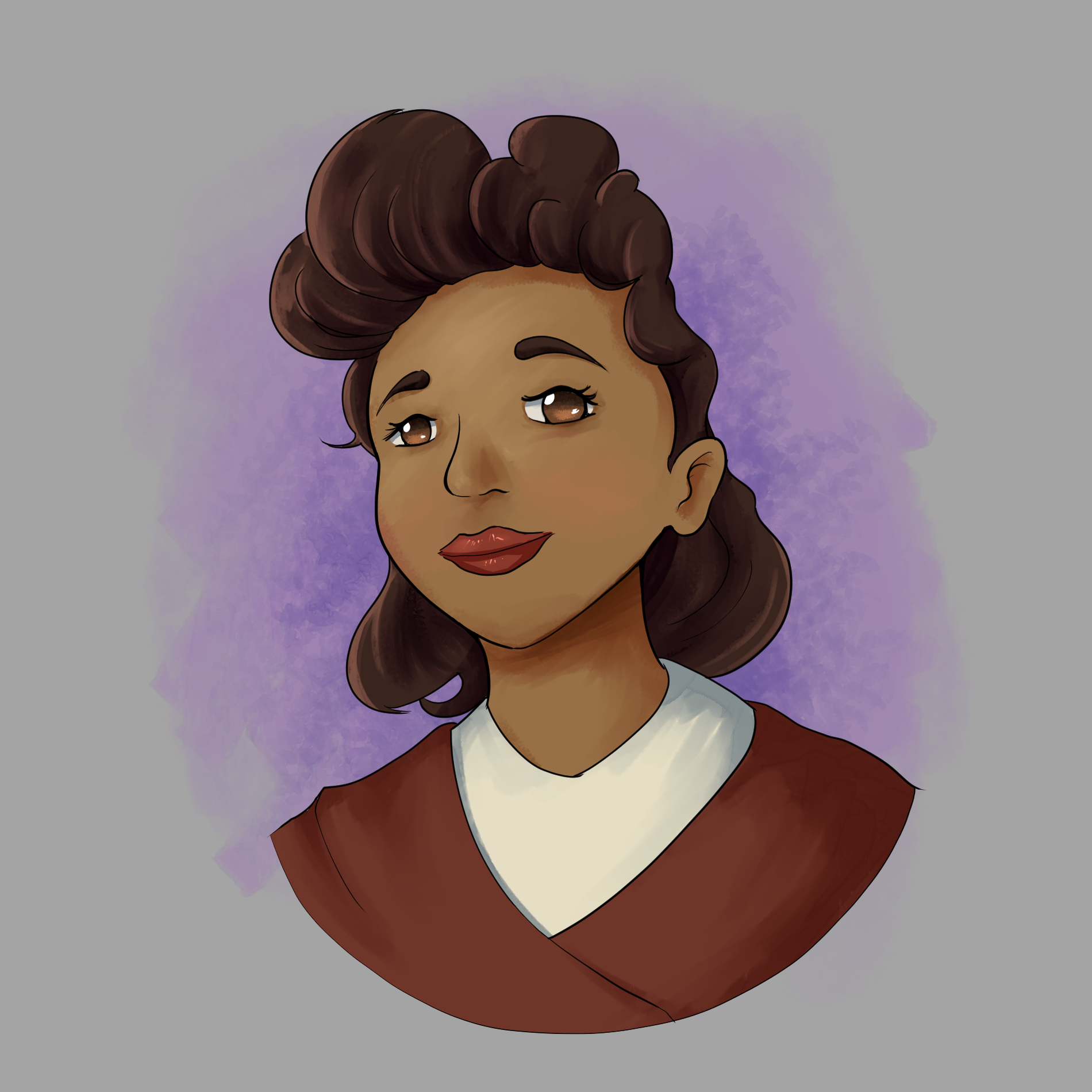
Participants will use provided data to construct a viable argument using mathematical reasoning. Participants will also explore ways to incorporate math strategies in other content areas to support math achievement. Read more »
Target Audience
Calendar Placement
Group Size
Intention Or Purpose

Meeting students where they are can seem like a daunting task, particularly when it comes to the ever-changing world of technology. However, using intentionally designed games can make learning fun, provide opportunities for critical thinking, and enhance knowledge related to mindset. Participants will... Read more »

The G Suite and Google Classroom PD focuses on exploring online instruction and implementation of technology in the classroom by using these innovative collaboration and productivity tools. Participants will collaborate to explore various components of G Suite, including Docs, Slides, Sheets, Forms,... Read more »
Intention Or Purpose

This 120-minute professional development focuses on understanding how virtual reality (VR) can take teaching and learning to a higher level through real-world connections, 21st-century skills, and critical thinking. Participants will explore VR, and then use VR resources to create a lesson or classroom... Read more »
Target Audience
Calendar Placement
Group Size
Intention Or Purpose

This short professional development activity allows participants to interact with G Suite and the Explore button and identify its use in the classroom. Read more »
Target Audience
Calendar Placement
Group Size
Intention Or Purpose

Participants will determine how to sequence science lessons through the lens of authenticity to increase student engagement. Participants will engage in a non-example of an authentic science learning experience. Following the activity, participants will reflect upon their experience and how it demonstrates... Read more »
Target Audience
Calendar Placement
Group Size
Intention Or Purpose

In this session, participants will explore the value of interactive story as a pedagogical tool, instructional strategies that can help to implement interactive story in existing instruction, and ways that Twine can support building interactive story as learning activities. Participants will engage... Read more »
Target Audience
Calendar Placement
Group Size
Intention Or Purpose

This session gives participants a guided exploration of K20's LEARN website, including 5E lessons, instructional strategies, tech tools, and tech-integrated strategies, to help them create a repository of resources they can use to aid authentic teaching in the classroom. Read more »
Target Audience
Calendar Placement
Group Size
Intention Or Purpose

The Leading Educators in Authentic Development (LEAD) workshop is a series of professional learning sessions that develop teachers’ skills in leading professional development at their school sites. This workshop features four sessions over a two-day period and this is the second of the four sessions.... Read more »
Target Audience
Calendar Placement
Group Size
Intention Or Purpose
Standards

This resource is part of a series of professional learning activities that can be used to support a group book study. In each section, you will be able to select from several activities that will enable you and the other participants in your book study group to think critically about the reading. The... Read more »
Target Audience
Calendar Placement
Group Size
Intention Or Purpose

This lesson guides students to understand how reading strategies enhance comprehension of a text. Students read a variety of texts, including artwork, a video, and a short story, using the OPTIC strategy. Students use the strategy to make Observations and Predictions about the text to aid their understanding... Read more »
Visual Literacy
Grade Level
Subject
Standards

Segregation was a pivotal issue in America in the late nineteenth and early twentieth centuries. Homer Plessy took a stand against segregation and the notion that separate but equal was legal. Upon reviewing and evaluating the Fourteenth Amendment, Jim Crow Laws, the Plessy v. Ferguson case, and other... Read more »
Grade Level
Subject
Course
Standards

Students will investigate the similarity of reproduction, embryonic development, and DNA sequences to illustrate the indirect evidence for evolution. "How EGG-ceptional Are We?" is written for a general biology course. Read more »
Evolution: Embryonic Development
Grade Level
Subject
Course
Standards

This is the first lesson in a series called, “Survival.” In this lesson students will observe different groups of animal groups and why the animals form groups to survive. Read more »
Animal Adaptations
Grade Level
Standards

Students explore exponential functions by investigating exponential decay. Students should already have an introduction to exponential equations before starting this lesson. Read more »
Exponential Decay
Related
Grade Level
Course
Subject
Standards

Students will analyze and summarize the philosophical and political principles of ancient and classical societies. Students will work independently and in groups using discussion, text, handouts, and video to identify the impact of Greek and Roman philosophy on the modern world. Read more »
Ancient Philosophy
Grade Level
Subject
Course
Standards

Scientific Method vs. Scientific Thinking
Grade Level
Students are introduced to a more holistic view of doing the scientific method by using scientific thinking instead. Students will be challenged to review and revise what they already know about the scientific method. Students will investigate what it means to do science and discover why some science... Read more »
Scientific Method vs. Scientific Thinking
Grade Level
Subject
Course
Standards

Students will be introduced to Shakespeare's language through a hands-on approach. First, students will read the prologue of "Romeo and Juliet" and translate the text into their own words. Then, students will think of present-day examples of art and media with similar themes to connect with Shakespeare's... Read more »
Making Shakespeare Accessible
Grade Level
Subject
Course
Standards

Before, during, and after reading the play "Antigone" by Sophocles, students will use pre-, during-, and after-reading strategies from Kylene Beers' book "When Kids Can't Read." Students will focus on both comprehension of the play and meaningful and relevant themes. Read more »
The Greek Drama Antigone
Grade Level
Subject
Standards

The struggle for the right to vote has been a hallmark of American history. From African Americans to women, many groups have struggled to gain this basic civil right. This lesson examines the U.S. government's role in voting rights by looking at ways the government has promoted and restricted these... Read more »
Voting Rights in America
Grade Level
Subject
Course
Standards

This lesson invites students to explore scientific models and simulations to learn about climate and weather phenomena. Students will learn from a meteorologist about how those in the field of climatology use math and science in their careers, as well as the details of this job and career path. By the... Read more »
ICAP Science: Weather
Related
Grade Level
Subject
Standards

Students will research the criminal justice system and participate in a mock trial as an assessment of their understanding. Read more »
The Criminal Justice Process
Grade Level
Subject
Course
Standards

In this lesson, students build key information literacy skills related to collecting, evaluating, and using information from different media types and formats to support a conclusion. Students start by playing through The Detective: Verona, a digital game-based learning (DGBL) module, to introduce the... Read more »
Information Literacy
Related
Grade Level
Subject
Course
Standards

In this lesson on how plants grow and develop, students will research specific plant behaviors and perform classroom investigations to learn how the environment affects plant growth. Students will focus on using evidence to explain their ideas and make predictions. (Funding provided by USDA Project... Read more »
Growth and Development of Organisms
Sponsor
Grade Level
Subject
Course
Standards

This lesson has students compare anatomical similarities and differences between organisms and explain the relationship between organisms based on homologous structures. Students first watch a video about a giant parrot and read an article about a giant penguin, then explore the ancient roots of modern-day... Read more »
Homologous Structures
Subject
Grade Level
Standards

Science
Students explore water erosion and investigate erosion and weathering in different types of soil. Funding provided by Agriculture and Food Research Initiative Competitive Grant no. 2013-69002-23146 from the USDA National Institute of Food and Agriculture. Read more »
Science
Standards

Setting and Conflict
In this lesson, students experiment with changing the settings in well-known fairy tales and examine how conflict might change in a different setting. Students explore the Prologue from Shakespeare's "Romeo and Juliet" and analyze how the setting affects the conflict. After analyzing and comparing different... Read more »

Students will evaluate what motivates people, especially as it relates to the main characters in “The Gift of the Magi.” As they read and listen to the story, students will identify thoughts and feelings that relate to the motivations and actions of the main characters. Students will also look for and... Read more »
Motivation in Characters
Subject
Course
Grade Level
Standards

In this lesson, students will discuss aspects of performance anxiety when speaking in front of an audience. They will identify strategies to manage these symptoms and create a tool to help improve their confidence when speaking to a group. Read more »
Speech and Debate
Grade Level
Subject
Course
Standards

This lesson will introduce students to some of the lesser-known individuals whose actions paved the way for the civil rights movement. Individuals discussed in this lesson include Elizabeth Jennings, Samuel W. Tucker, Ada Lois Sipuel Fisher, George McLaurin, and Clara Luper. Using primary and secondary... Read more »
The Civil Rights Movement
Grade Level
Subject
Course
Standards

In this lesson, students will be asked to determine what a siren is. Students will read an excerpt from "The Odyssey" and other texts and watch selected videos. They will examine the various texts and videos from different perspectives to draw conclusions about the mythical siren. Read more »
Is It a Bird or Is It a Fish?
Subject
Course
Grade Level
Standards

Students will investigate the similarity of reproduction, embryonic development, and DNA sequences to illustrate the indirect evidence for evolution. This lesson is adapted for a middle school class. Read more »
Evolution: Embryonic Development
Subject
Course
Grade Level
Standards

In this lesson, students will examine the facts associated with evolution, make inferences about an organism based on fossilized remains, explore how evolution is influenced by the environment, and construct a timeline of an organism's evolution as a result of environmental factors or human impact over... Read more »
The Foundations of Evolution
Subject
Course
Grade Level
Standards

This lesson is intended to support life science standards found in biology. The lesson is not intended to cover the standards completely but to supplement them and raise awareness of ethical issues and racism in science and medicine. Read more »
Ethics in Scientific Research
Grade Level
Subject
Course
Standards

In this lesson, students will work in groups to annotate and summarize texts about plagiarism and its effect on learning. They will reflect on what they know about plagiarizing and how to avoid it in their writing. By teaching one another through group and class discussions, students will better understand... Read more »
Avoiding Plagiarism
Subject
Course
Grade Level
Standards

This lesson will take learners through the discovery of various word parts. Throughout the lesson students will be able to connect parts of a word they are familiar with to help understand unknown vocabulary through context clues. Read more »
Affixes and root words
Subject
Grade Level
Standards

In this lesson, students explore the changes that happen from night to night in the sky, especially the Moon's changing appearance. Students learn that as the Moon orbits the Earth, the Moon appears to change shape, which is a predictable pattern. In this lesson, students use a Moon card sort, view... Read more »
Eight Phases of the Moon
Grade Level
Subject
Course
Standards

This lesson will introduce students to the impact of the Cold War within the United States. This lesson is meant to be taught after the WWII content was introduced to students and can be used in tandem with multiple cross-curricular lessons in LEARN. Using hands-on activities, discussions, and research,... Read more »
Effects of the Cold War
Grade Level
Subject
Course
Standards
This informative writing lesson explores what informative writing is, how it differs from other modes of writing, and how to apply that new knowledge. This lesson is perfect for introducing informative writing, assessing what students have learned about informative writing during instruction, and... Read more »
Informative Writing
Subject
Course
Grade Level
Related
Standards

Putting It All Together: Layout and Final Product
Grade Level
In this fourth and final lesson of "The K20 Chronicle" journalism unit, students will have an opportunity to peer review/edit a classmate's article, learn about magazine/newspaper layouts, preview examples and non-examples of proper layouts, hear from two graphic artists on how they came to be in the... Read more »
Putting It All Together: Layout and Final Product
Related
Grade Level
Subject
Course
Standards

This lesson is a basic introduction to setting up a chemical equation. This could be part of a unit for physical science and can be done as a refresher or opener in chemistry for chemical equations. Read more »
Chemical Reactions
Related
Grade Level
Course
Standards

In this lesson, students listen and engage with a fiction and nonfiction story about nocturnal animals. They then learn to put their ideas and facts into a graphic organizer, which they use to help them write a 3-5 sentence fact story about nocturnal animals. Read more »
Informative Writing About Nocturnal Animals
Grade Level
Subject
Standards

In this visual arts lesson, students will look at examples of photo touch-ups, restoration, and mash-ups. They will practice by attempting to make a mash-up with provided practice images. As a class, students will discuss what they tried to do with the software to make it work, share any tricks learned,... Read more »
Digital Image Editing, Collage Art, and Fair Use
Grade Level
Subject
Course
Standards

In this lesson, students will learn the basic formatting guidelines needed to follow for writing a script. They will also listen to a film professor talk about careers in television and movies. This is also adaptable for ELA using books that are commonly assigned. Read more »
Screenwriting and other careers in the film industry
Related
Grade Level
Course
Subject
Standards

In this lesson, students explore a variety of examples of how science is conducted in the world outside of the classroom. Examples come from a variety of Twitter trends where scientists share their mistakes, unexpected mishaps, and use of non-standard equipment in the course of their research. Additionally,... Read more »
The Nature of Science
Grade Level
Subject
Course

In this lesson, students explore how data travels through the internet, define packages and protocols, and understand the best protocol for the type of data. Students put together puzzles to replicate how information is put into packets, watch an informational video on how networks work, compare two... Read more »
Understanding Data Transfer Protocols
Grade Level
Course
Subject

The basics of envelopes and applying the concepts to musical performance
Grade Level
In this lesson for band classes, students will discuss what “attack” and “release” mean in a musical context. Students will participate in a “30-Second Expert” activity in pairs, in which one student reads about ADSR (attack, decay, sustain, and release) envelopes on synths and the other reads about... Read more »
The basics of envelopes and applying the concepts to musical performance
Related
Grade Level
Course
Subject
Standards

In this lesson students will learn about forensic impression evidence. They will come to understand the methods for documenting and analyzing two- and three-dimensional impressions by collecting dental stone castings and inked impressions of shoe prints. After analyzing the characteristics of these... Read more »
Analyzing Forensic Impression Evidence
Grade Level
Subject
Standards

This lesson will explore the particular challenges of experimental design in psychology. Students will get to know the fundamentals of experimentation, and how they apply to psychological research. They will come to appreciate why the scientific method is necessary, and how psychology employs it, including... Read more »
Psychology Research
Grade Level
Subject
Course
Standards

In this lesson, students learn to analyze relationships in bivariate data by exploring scatter plots and calculating the correlation coefficient. Prerequisite knowledge for this lesson includes z-scores using summation notation (sigma), mean (x bar), and standard deviation. Students build their understanding... Read more »
Correlation Coefficient
Related
Grade Level
Course
Subject
Standards

This lesson is designed to help students use an excerpt from “In Praise of Bats” to identify the author’s purpose by analyzing word choice and figurative language use. By examining an author’s purpose and the mood of a text, students will be able to better identify with texts on a deeper level. Read more »
Identifying an Author's Purpose and Intended Response
Grade Level

In this lesson, students will explore potential career paths by researching and writing argumentative essays. Students will select a career of interest and gather information on job responsibilities, salary prospects, educational requirements, and the industry's current and future outlook. They will... Read more »
Argumentative Essay
Related
Grade Level
Subject
Course
Standards

Business Management and Cost of Production
Grade Level
In this lesson, students will learn how graphs are used to analyze cost of production in business. Students complete a card sort to engage with important terms and use the WIS-WIM strategy to analyze line graphs. Students then learn how double bar graphs are used to compare fixed and variable costs... Read more »
Business Management and Cost of Production
Related
Grade Level
Subject
Course

In this ceramics lesson, students will explore, research, and learn about the stages of clay, what they can do in each stage, such as hand working and surface decoration techniques. This lesson includes an ICAP video of a ceramic studio manager. In the video, she introduces herself and discuss her job,... Read more »
Stages of Clay
Related
Grade Level
Subject
Course
Standards

Grade Level
The K20 Center’s GEAR UP program wants to help you explore career options! This Career Cluster activity will help you think about your skills, personality, and interests to identify which clusters might be a good fit for you. While your interests will likely change over the years, the Career Cluster... Read more »
Grade Level
ICAP (Individual Career Academic Planning)
College & Career Readiness Framework

Grade Level
The K20 Center’s GEAR UP program wants to help you explore career options! This Career Cluster activity will help you think about your skills, personality, and interests to identify which clusters might be a good fit for you when it comes to a career using drones. While your interests will likely change... Read more »
Grade Level
ICAP (Individual Career Academic Planning)
College & Career Readiness Framework

College2Career Forums (C2CF), a series of focused, career-specific explorations, have been planned for the top requested careers. In these day-long experiences, students will travel to a Postsecondary Institution (PSI) to explore a common aspect of the career through hands-on activities. Armed with... Read more »
Target Audience
Calendar Placement
Group Size
Related
ICAP (Individual Career Academic Planning)
College & Career Readiness Framework
Family Engagement

This workshop prepares student for the ACT test by utilizing several K20 Instructional Strategies. The workshop is designed to be an after-school program lasting for seven weeks and including one 2-hour session each week. Sessions will be broken up into reading/ELA and science/math. This resource provides... Read more »

Students taking AP or Concurrent Enrollment courses will be able to benefit from actively thinking about how they study for these college-level courses compared to their other courses. Students who know how to approach their college courses differently will be better prepared to succeed with these study... Read more »
This 7th grade campus visit companion activity complements a college campus tour for students. To learn about different facets of college life, students will participate in a learning activity to familiarize themselves with college degrees and other postsecondary education (PSE) options for various... Read more »
Target Audience
Calendar Placement
Group Size
Intention Or Purpose
College & Career Readiness Framework

In this lesson, students will explore the history and societal impact of fraternities and sororities. Students will explore new vocabulary and read about the history behind multicultural Greek organizations. They will then watch interviews with members of Greek organizations who share their personal... Read more »
Target Audience
Calendar Placement
Group Size
Intention Or Purpose
ICAP (Individual Career Academic Planning)
Family Engagement
College & Career Readiness Framework

The College2Career Forum: Build My Future focuses on career exploration in the architecture and construction career clusters. Held at a pavilion at the Oklahoma State Fairgrounds, students will engage with over 100 exhibitors ranging from Postsecondary Education institutions to local businesses. They... Read more »

This activity has students engage with the many possible paths available in post-secondary education. Students embark on a scavenger hunt in which they locate facts about the many post-secondary education options by discussing college journeys with teachers, viewing college journey boards, or locating... Read more »
Target Audience
Calendar Placement
Group Size
Intention Or Purpose
College & Career Readiness Framework

Pathfinder Quest: Pathways to Possibilities helps students explore how their interests connect to real careers. Through online activities and reflection, students learn that choosing a major isn’t about being perfect, but rather finding a path that fits who they are and where they want to go. Read more »

This resource serves as a guide for planning and facilitating a job shadowing or industry tour event to give students hands-on experiences in career fields that interest them. During each job shadowing event, students travel to job sites to explore common aspects of a career through experiential learning.... Read more »
Target Audience
Calendar Placement
Group Size
College & Career Readiness Framework
Family Engagement

Grade Level
The Free Application for Federal Student Aid (FAFSA) is the gateway to financial aid. By completing the FAFSA, students become eligible for various forms of financial assistance that can significantly offset the cost of their education. Filling out the FAFSA determines a student's eligibility for state... Read more »
Target Audience
Calendar Placement
Group Size
Intention Or Purpose
College & Career Readiness Framework
Grade Level

Families will gain an understanding of how postsecondary opportunities increase career choices and lifetime earnings. Students and their families will investigate two career choices and discover the benefits and challenges of each. Families will identify resources and information for the potential funding... Read more »

Grade Level
This activity is designed to introduce the parents and caregivers of GEAR UP cohort students to the definition and benefits of postsecondary education and provide them with a brief overview of GEAR UP for LIFE services. Read more »
College & Career Readiness Framework
Family Engagement
Grade Level

